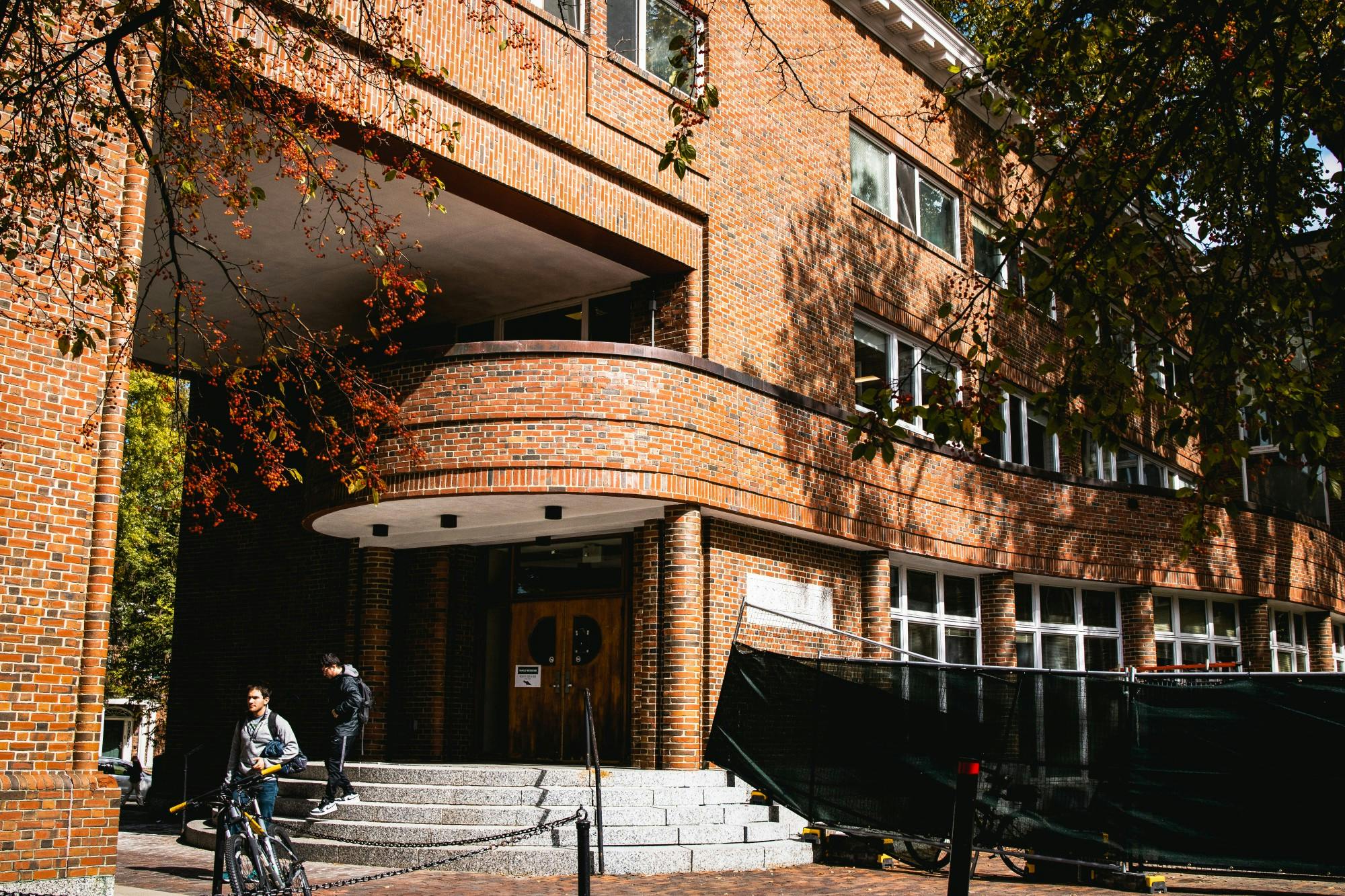On Jan. 18, the Dartmouth Political Economy Project invited Russian and comparative literature professor Lada Kolomiyets to give a lecture on the history of Russian censorship in Ukraine. The lecture, “Russian Censorship in Ukraine: The Dark Side of Translation,” was delivered in-person in the Rockefeller Center to an audience of around three dozen students, professors and community members.
Kolomiyets, who is a professor of translation studies at the Taras Shevchenko National University of Kyiv, spoke about how Russia has historically censored literature translated into Ukrainian in Ukraine to suppress the formation of an independent Ukrainian cultural and linguistic identity.
According to Kolomiyets, Russia has been attempting to control and limit the usage of the Ukrainian language since the time of the czars. She pointed to the Valuev Circular of 1863, a document in which the Minister of Internal Affairs of the Russian Empire prohibited the use of Ukrainian in most published works. Referring to the circular, Kolomiyets said that the Russian government viewed Ukraine as “Little Russia” and denied the existence of a separate Ukrainian language as nothing more than “Russian corrupted by the influence of Poland.”
Kolomiyets said that Ukrainian writers and translators who translated texts from other languages into Ukrainian evaded censorship in various ways, such as by publishing their works in parts of Ukraine not under Russian control or bribing censors.
“Translation became a highly important instrument of cultural and political survival,” Kolomiyets said. “[It] became a battlefield.”
She went on to say that censorship of Ukrainian literature became even more strict under the Soviet Union. Under Stalin, Kolomiyets said, the Soviet government enacted laws regulating both the types of texts that were allowed to be translated into Ukrainian and the translation strategies used.
According to Kolomiyets, there was a “hierarchy” of permissible texts that included first Soviet texts, then select Russian classics, texts from other colonial and socialist countries and texts from “progressive” Western authors who portrayed the Soviet Union positively in their writing. She said that translators who translated prohibited texts were turned into “Orwellian non-persons” who had their names and works erased from mention, while editors who were “too liberal” with their editorial decisions were removed from their positions.
“There was a political guideline imposed by Soviet censorship that could not be circumvented,” Kolomiyets said.
She added that the Soviet Union used translation to promote the Russification of Ukraine by creating dictionaries that assigned direct Ukrainian translations to Russian words. According to Kolomiyets, this had a “disastrous” effect on Ukrainian literature because it erased unique elements of Ukrainian culture and language and turned Ukrainian into “a pale shadow of the Russian language.”
However, Kolomiyets noted that throughout the 19th and 20th centuries, Ukrainian translators continued to resist Russian censorship and work to distance the Ukrainian language from Russian.
“Thanks to talented translations, the Ukrainian language continued to develop even after the pogroms in the 1940s,” Kolomiyets said. “Because of them, Ukrainian did not die out as a superfluous and abandoned language.”
Tiffany Chang ’23, who is majoring in comparative literature, said that she learned about the lecture from her translation course, COLT 19, “Translation: Theory and Practice.”
“I thought it would be a great way to learn more about the politics of translation, especially in connection to the current events in Ukraine,” Chang said. “I wanted to be better informed.”
Camellia Pham, who is a Master’s student in comparative literature and studied translation studies at the University of Iowa, said that attending the lecture was very “constructive” with regard to her academic interests.
“It reminded me that language hierarchy is very prominent,” Pham said. “We talk about language hierarchy as a pure linguistic term, but it actually involves cultural, political and historical undertones.”
Chang agreed that the lecture made her more aware of the significance of translation.
“I think it made me a lot more aware of the stakes of translation and why it’s so important,” Chang said. “As someone who wants to maybe translate some things of my own, but also be a writer and scholar of my own, it was really interesting.”




